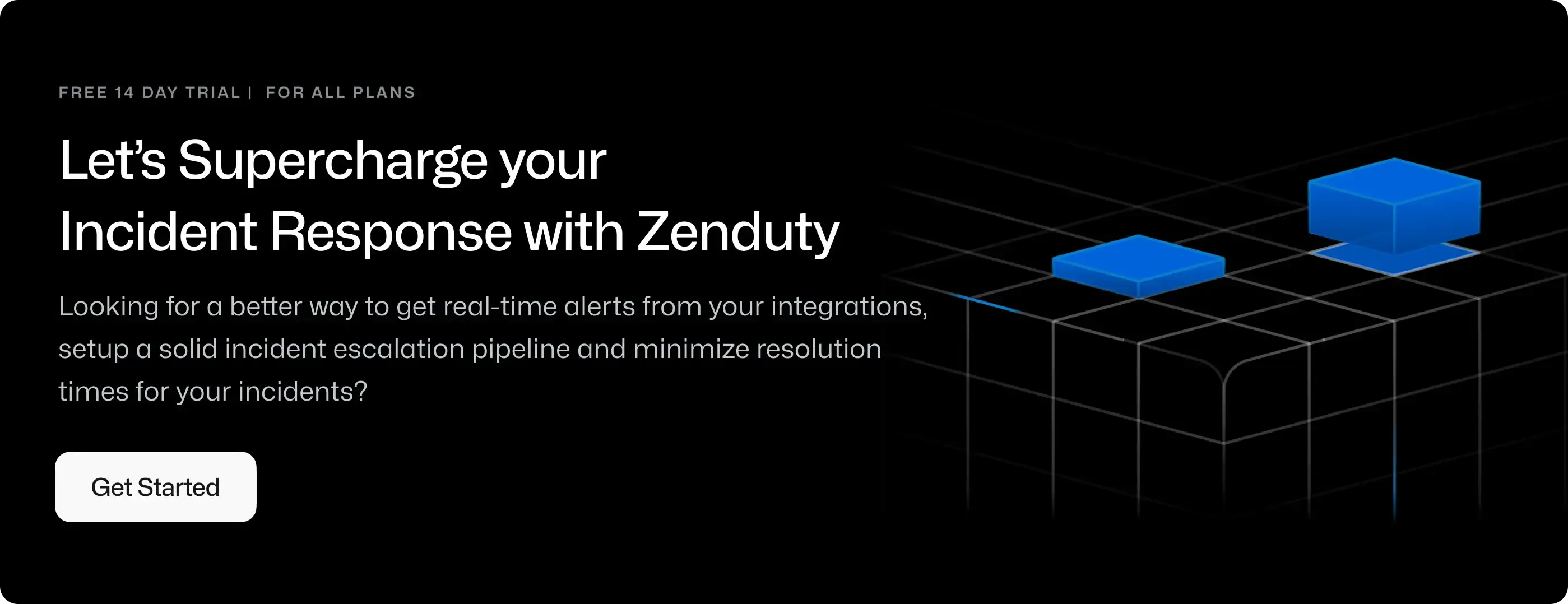CloudAMQP Integration Guide
CloudAMQP provides managed RabbitMQ and LavinMQ servers in a cloud of user's choice. It also allows user to monitor queues and alert based on the performance anomalies in application.
What can Zenduty do for CloudAMQP users?
With CloudAMQP's Integration, Zenduty sends new alerts to the right team and notifies them based on on-call schedules via email, text messages(SMS), phone calls(Voice), Slack, Microsoft Teams and iOS & Android push notifications, and escalates alerts until the alert is acknowledged or closed. Zenduty provides your NOC, SRE and application engineers with detailed context around the Network Monitor alert along with playbooks and a complete incident command framework to triage, remediate and resolve incidents with speed.
You can also use Alert Rules to custom route specific CloudAMQP alerts to specific users, teams or escalation policies, write suppression rules, auto add notes, responders and incident tasks.
To integrate CloudAMQP with Zenduty, complete the following steps:
In Zenduty:
-
Go to Teams and click on the team you want to add the integration to.
-
Next, go to Services and click on the relevant Service.
-
Go to Integrations and then Add New Integration. Give it a name and select the application CloudAMQP from the dropdown menu.
-
Go to Configure under your Integrations and copy the generated Webhook URL.
In CloudAMQP:
-
Login to your CloudAMQP. Go to the Instance for which you want to setup alert.

-
Navigate to MONITORING > ALARMS.

-
Click on Add new recipient and select Webhook. Under Webhook, give a suitable name like 'Zenduty', paste the webhook URL which you copied from Zenduty and Save recipient.


-
Create a new alarm or open an already created alarm and select the above webhook as Recipients.

-
CloudAMQP is now integrated with Zenduty.
